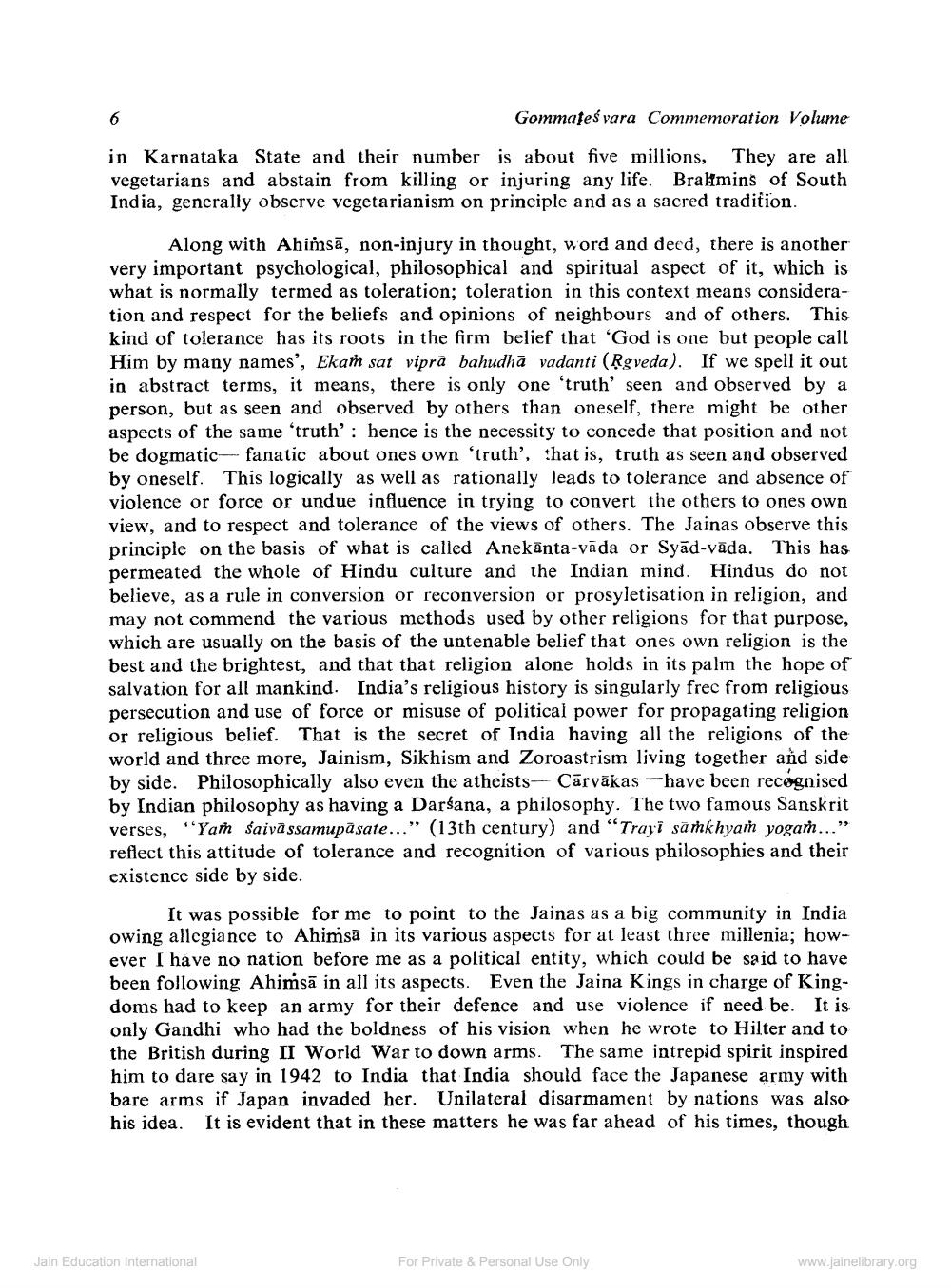________________
Gommateśvara Commemoration Volume
in Karnataka State and their number is about five millions, They are all vegetarians and abstain from killing or injuring any life. Brakimins of South India, generally observe vegetarianism on principle and as a sacred tradition.
Along with Ahimsā, non-injury in thought, word and decd, there is another very important psychological, philosophical and spiritual aspect of it, which is what is normally termed as toleration; toleration in this context means consideration and respect for the beliefs and opinions of neighbours and of others. This kind of tolerance has its roots in the firm belief that God is one but people call Him by many names', Ekam sat viprā bahudhā vadanti (Rgveda). If we spell it out in abstract terms, it means, there is only one 'truth' seen and observed by a person, but as seen and observed by others than oneself, there might be other aspects of the same 'truth': hence is the necessity to concede that position and not be dogmatic- fanatic about ones own 'truth', that is, truth as seen and observed by oneself. This logically as well as rationally leads to tolerance and absence of violence or force or undue influence in trying to convert the others to ones own view, and to respect and tolerance of the views of others. The Jainas observe this principle on the basis of what is called Anekānta-vāda or Syād-vāda. This has permeated the whole of Hindu culture and the Indian mind. Hindus do not believe, as a rule in conversion or reconversion or prosyletisation in religion, and may not commend the various methods used by other religions for that purpose, which are usually on the basis of the untenable belief that ones own religion is the best and the brightest, and that that religion alone holds in its palm the hope of salvation for all mankind. India's religious history is singularly free from religious persecution and use of force or misuse of political power for propagating religion or religious belief. That is the secret of India having all the religions of the world and three more, Jainism, Sikhism and Zoroastrism living together and side by side. Philosophically also even the atheists- Cārvākas --have been recognised by Indian philosophy as having a Darśana, a philosophy. The two famous Sanskrit verses, "Yam saivassamupäsate..." (13th century) and “Trayi samkhyam yogam...” reflect this attitude of tolerance and recognition of various philosophies and their existence side by side.
It was possible for me to point to the Jainas as a big community in India owing allegiance to Ahimsā in its various aspects for at least three millenia; however I have no nation before me as a political entity, which could be said to have been following Ahimsa in all its aspects. Even the Jaina Kings in charge of Kingdoms had to keep an army for their defence and use violence if need be. It is only Gandhi who had the boldness of his vision when he wrote to Hilter and to the British during II World War to down arms. The same intrepid spirit inspired him to dare say in 1942 to India that India should face the Japanese army with bare arms if Japan invaded her. Unilateral disarmament by nations was also his idea. It is evident that in these matters he was far ahead of his times, though
Jain Education International
For Private & Personal Use Only
www.jainelibrary.org




